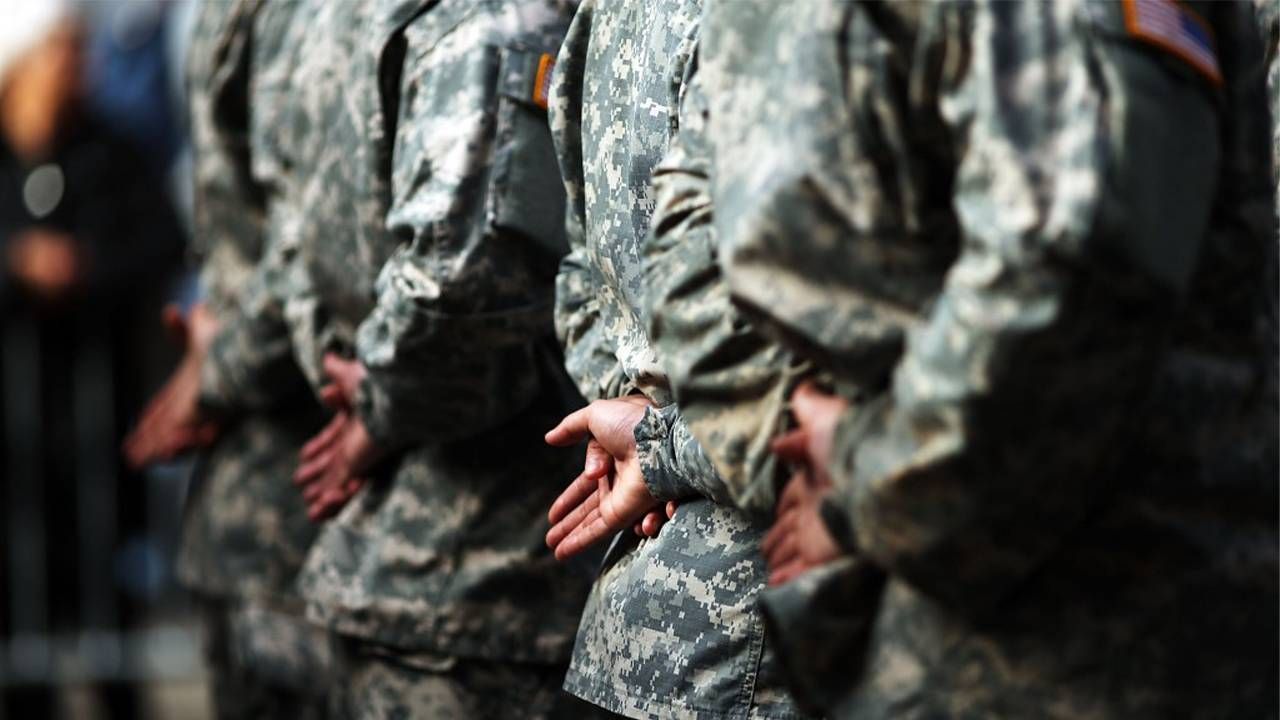For Military Veterans, A Higher Rate of Suicide
In the U.S., veterans comprise almost a quarter of suicide deaths. Here's how a VA mental health screening program aims to make a difference.
Suicide risk inhabits much of the current public discussion about mental health in our American society. It is considered a preventable health problem, as attention is focused on efforts to address suicide rates.

Military veterans comprise nearly a quarter of suicide deaths in the United States. Epidemiological studies indicate a suicide rate for veterans at one and a half times higher than that of the general population.
Comparing the rate among female veterans to non-veteran adult women, the rate of suicides is 2.5 times higher. From 2001 to 2014, the U.S. Department of Veterans Affairs (VA) reported an increase in suicides in women using VA health services from 14.4 per 100,00 to 17.3 per 100,000.
Military veterans comprise nearly a quarter of suicide deaths in the United States.
Suicide rates are noted to be especially higher among older veterans. According to the VA in 2016, about 58% of all veterans who died by suicide were among those aged 55 or older. In 2017, a team of military researchers found that those veterans with substance use disorders had twice the incidence of suicide compared to those without a substance use disorder.
Why Are Suicide Rates Higher in the Veteran Population?
Dr. Johnathan Martin, a Virginia clinical psychologist working with the veteran population, said, "According to public VA data, 23 veterans die by suicide daily, with three quarters of this population not under VA care. Roughly 30 to 40 percent of individuals who died by suicide saw a health care provider within the week preceding a suicide attempt, and approximately half to two-thirds saw a health care provider within the month before a suicide."
For all individuals in life threatening distress, there are emotional precursors that may precede a suicide attempt, including feelings of loneliness and isolation, hopelessness, and chronic depression.
Martin speaks to his experience working with veterans."These symptoms have an interesting perspective in the military. They may stem from the veteran's perceived lack of fraternity with their civilian counterparts. In military service, a unique, cohesive community is formed as a core protective factor for physical and emotional security in service. Veterans are taught that each assignment — the mission — has a clear sense of purpose. Personal value is to be derived from the continued focus of mission after mission and on one's position held during completion of the work's objectives," Martin explained.
Loss of Structure
He continued, "Colloquially, everyone has a job; they know what they are doing; they know why they are doing it. A return to the civilian world brings a loss of the mission-driven structure, and for many service people, this is a culture shock."
In a summary of multiple studies, a variety of factors were found that increase the likelihood of suicidality in veterans, including unmitigated anger and anxiety, increased alcohol and substance abuse, and indulgence in self-destructive and risky behaviors, such as driving while impaired.
Martin added, "When a person is medically discharged, or 'med-boarded' against their wishes due to a physical or mental disability, the effects of loss of that firm military identity can jar the psyche, leading those with long standing mental health vulnerabilities into effects similar to those of trauma related to combat exposure."
Connecting Substance Abuse and Veteran Suicide Risk
It is recognized that alcohol and substance abuse play a particular and significant role in the increased risk of suicide. This is true in the veterans' community; veterans that abused alcohol or drugs were over twice as likely to die by suicide than other veterans who killed themselves. According to public information from the VA, more than 1 in 10 veterans are diagnosed with a substance use disorder.
Dr. Nathan Mascaro is an Atlanta clinical psychologist who has a long professional history working with veterans and the VA system. He speaks to his professional opinion on mental health care related to veterans.
A Paradigm Shift
"I think that veterans often don't address emotional suffering because of a personally felt, inadequate justification for their suffering, that somehow they don't deserve treatment," said Mascaro.
He suggests that encouraging veterans to seek more effective help "will in part require the public, the media, and frankly, the VA, to de-prioritize and stop glorifying the combat experience."
"Depression, alcoholism, and bipolar disorders are far better predictors of suicide in veterans than combat exposure. There is so much more than PTSD (Post-traumatic stress disorder) to the diagnostic picture. It is a best practice treatment benchmark noted that veterans with combat exposure are at decreased risk for suicide when compared to non-combat veterans," Mascaro said. "To receive the best attention and treatment, an individual's health problems cannot be justified by the social connection of military experience to the view of service as heroic or self-sacrificing. This just isn't the case with most veterans who struggle with suicidality."
"Veterans are like all others in our society. Everyone deserves compassion and care because of deeply felt pain."
Mascaro continued, saying, "Veterans are like all others in our society. Everyone deserves compassion and care because of deeply felt pain. In this way, a military veteran is like every other citizen. We are all heroes in some way, including veterans; few of us are superheroes. A veteran's suffering warrants treatment because of the truths found living with their humanity, not because of a cool story or special identity making them feel more or less deserving of treatment."
According to Mascaro, "while some do live with that stereotyped veteran's identity as a seasoned combatant, most are like you and me. The overlay of the hero identity on the vulnerability of being human paradoxically separates the person from others, increasing the potential for isolation."
Martin serves on a VA Task Force that considers enhancements of suicide assessment services in the military. The VA has asked for quantifiable markers to screen for suicide risk.
Of the initiative, Martin said, "It is now standard practice for every veteran, regardless of any mental health history, to be screened annually for self-destructive suicidal behavior within the VA system. The VA is actively increasing the numbers of dedicated suicide prevention staff, plus embedding mental health providers in primary care and other specialty medical clinics. The operational goal is to enhance mental health care for same-day access, with no scheduled appointment needed."
Signs That Someone May Be Considering Suicide
Suicidal thoughts unfold in a gradual and subtle ways, with resulting harmful effects. The energy that points a person toward self-harm can be embedded in depression, anxiety, and a low sense of self-worth and esteem. Oftentimes, veterans are taught to be stoic and to "tough it out." The urge to harm oneself may not be personally evident to the individual or obvious to those people in their support system until the veteran lives outside of the regimented military system.
That said, there are symptoms and patterns that are signs alerting the potential presence of danger. They include:
- Persistent depressed mood, heightened anxiety, or agitation (at least two weeks)
- Changes in sleeping, either insomnia or hypersomnia (sleeping too much)
- Loss of self-care
- Pulling away from friends, family, activities of daily living
- Loss of interest in work, school, or pleasurable activities that were previously engaging
- Expression of excessive feelings of guilt, shame, failure, or lack of purpose in life; feeling “trapped”
- Increase in risk taking behavior
How to Get Help
As noted, the VA is taking steps to mitigate suicide rates among veterans. The VA Mission Act was passed in 2018 by the federal government and makes aggressive efforts to extend outreach to vulnerable veterans, including provisions to enhance the recruitment of mental health providers and an expansion of telehealth services.
The Coaching into Care Program provides direct access to licensed psychologists and social workers for no-cost telephone consultation. The phone number is 888-823-7458.
If you know an older adult is in immediate danger of taking their life, take them to an emergency room, or call the National Suicide Prevention Lifeline at 800-273-8255. 988 is a new universal dialing code to broaden access to suicide prevention and crisis services. Dialing 988 connects people in crisis directly to the Suicide Prevention Lifeline, where counselors provide free, unbased, and confidential support 24 hours a day, seven days a week. Dialing 988 is the same as dialing 911 for emergency response. There is no reason to dial any other digits besides those three.
Editor’s note: "Facing Suicide" is a new PBS documentary exploring the personal stories of Americans impacted by suicide, and journeys to the frontlines of medical and scientific research to meet those working to help people at risk. "Facing Suicide," narrated by Josh Charles ("The Good Wife") is streaming on PBS.


